Rescuers Race to Save Hundreds of Whales Stranded on Remote New Zealand Beach
It's one of the worst whale strandings in the country's history.
— -- More than 400 pilot whales have become beached along a remote New Zealand beach, and it’s now a race against time to save them.
A group of 416 whales came ashore on Farewell Spit at the tip of the South Island in one of the country’s worst strandings on record. About 75 percent of them had died by the time they were discovered Friday morning, according to Television New Zealand (TVNZ).
"This is the third largest mass stranding that we've recorded in our history and so, it's a very large one, logistically it's a massive undertaking,” Rochelle Constantine, a marine biologist at the University of Auckland, told the state-owned broadcaster.
In 1918 about 1,000 pilot whales were stranded on the Chatham Islands, according to Constantine. In 1985, some 450 whales beached themselves in Auckland.
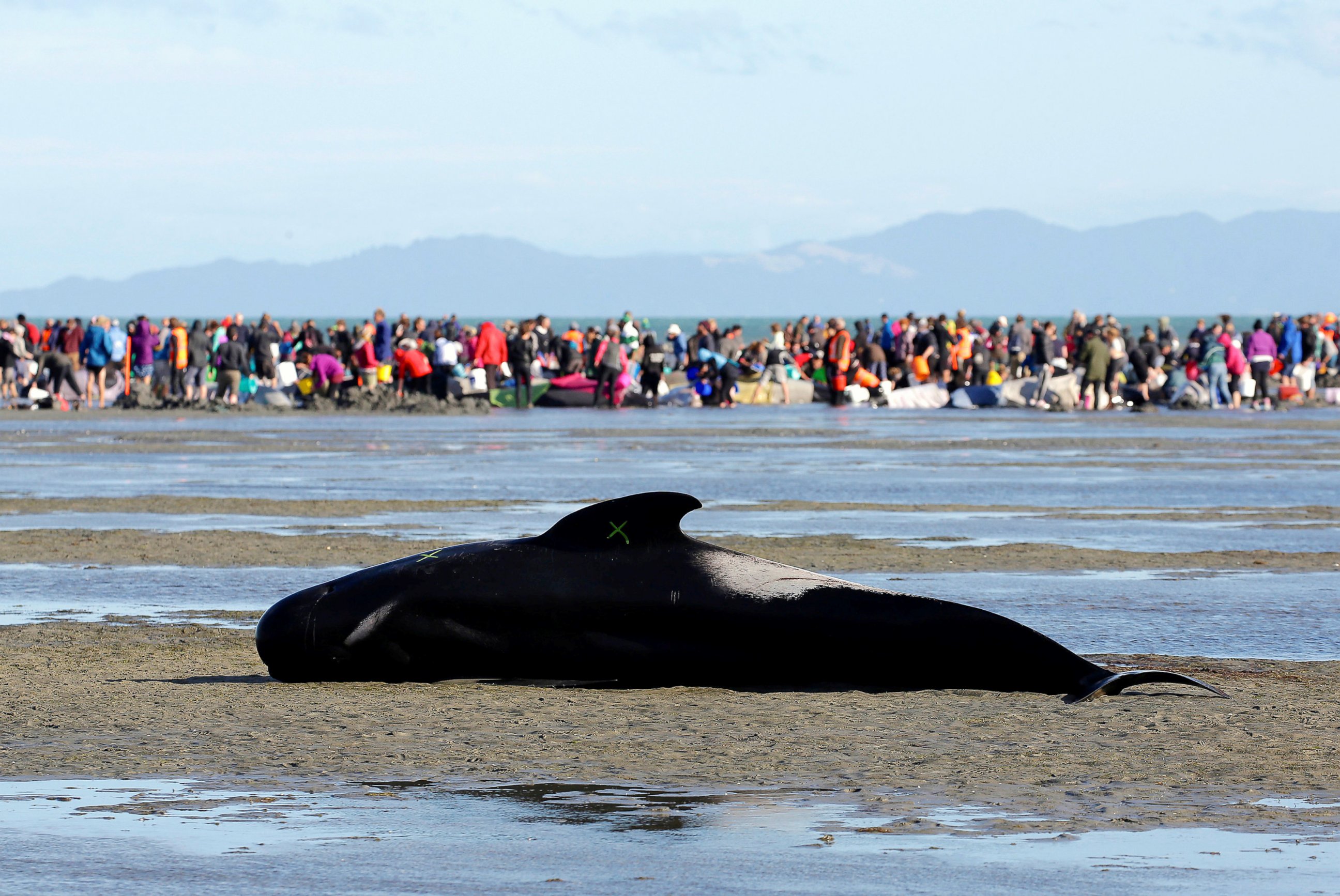
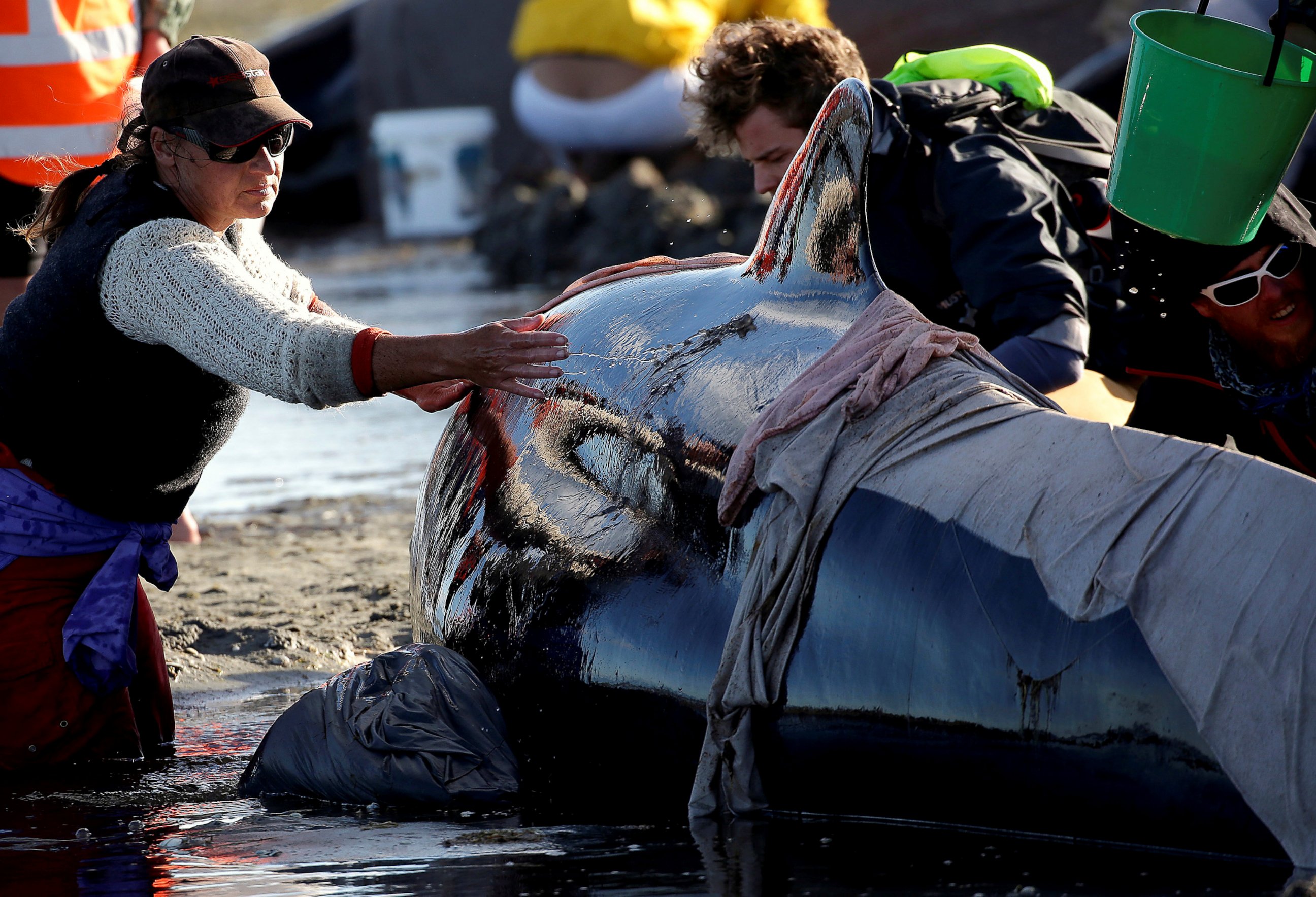
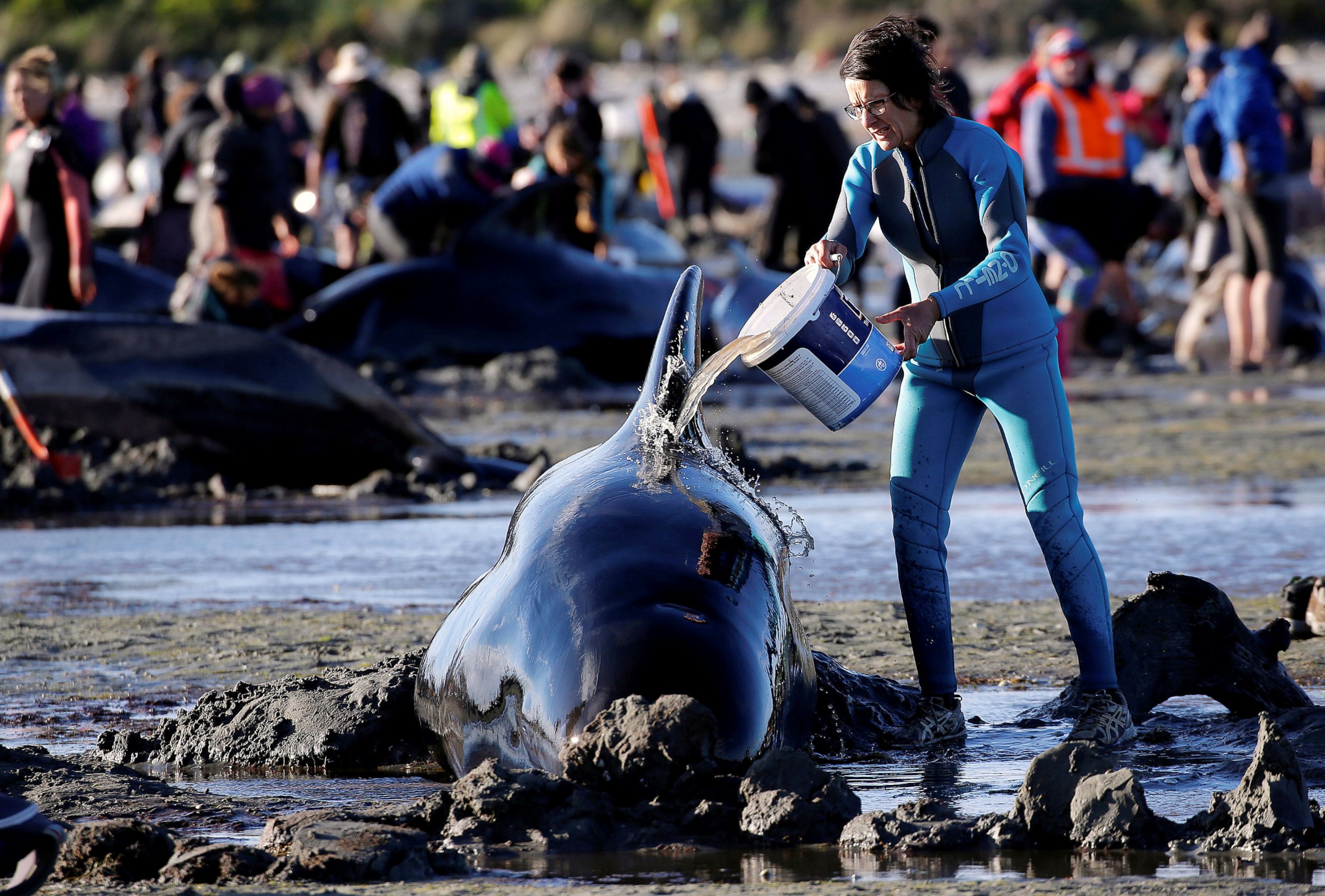
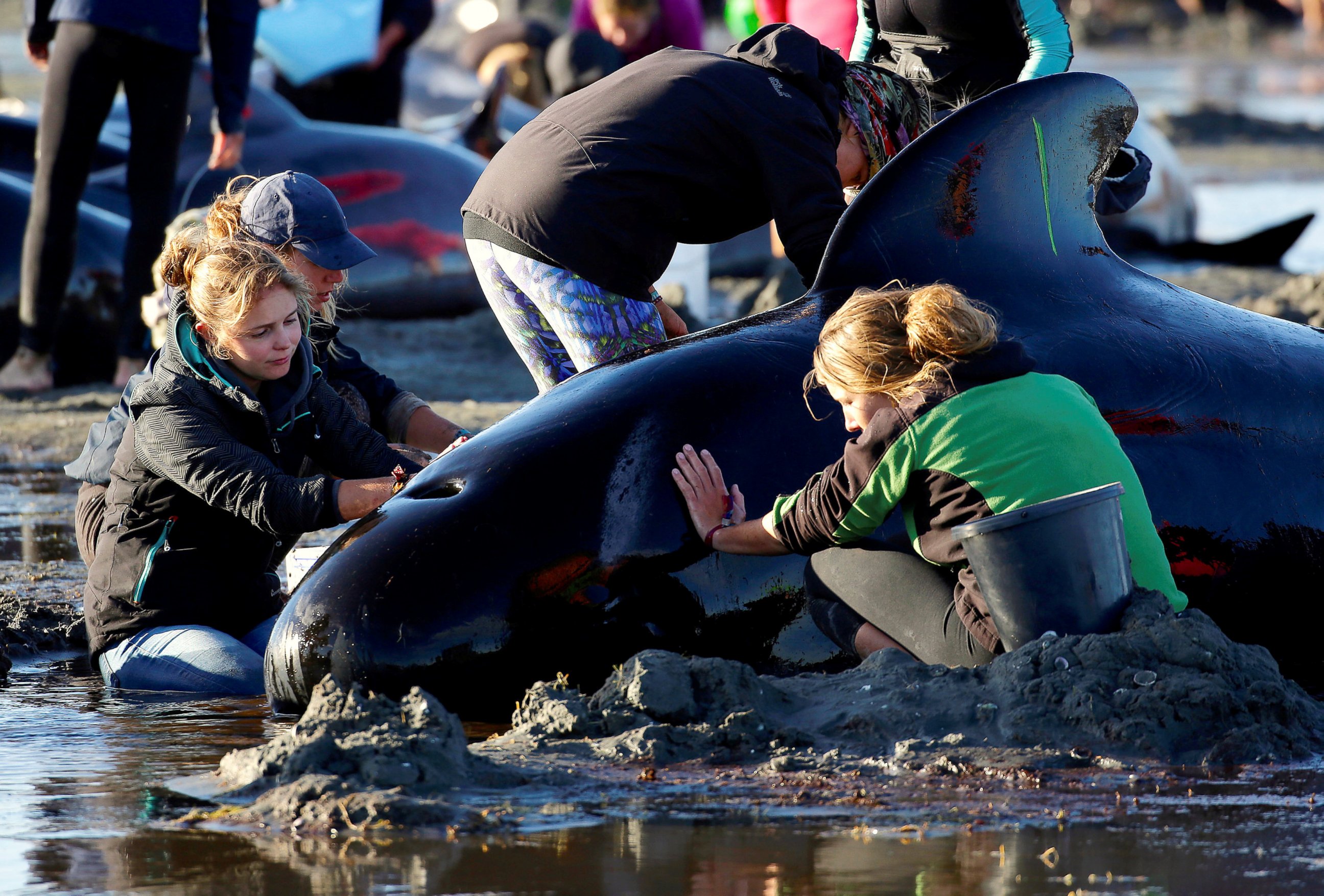
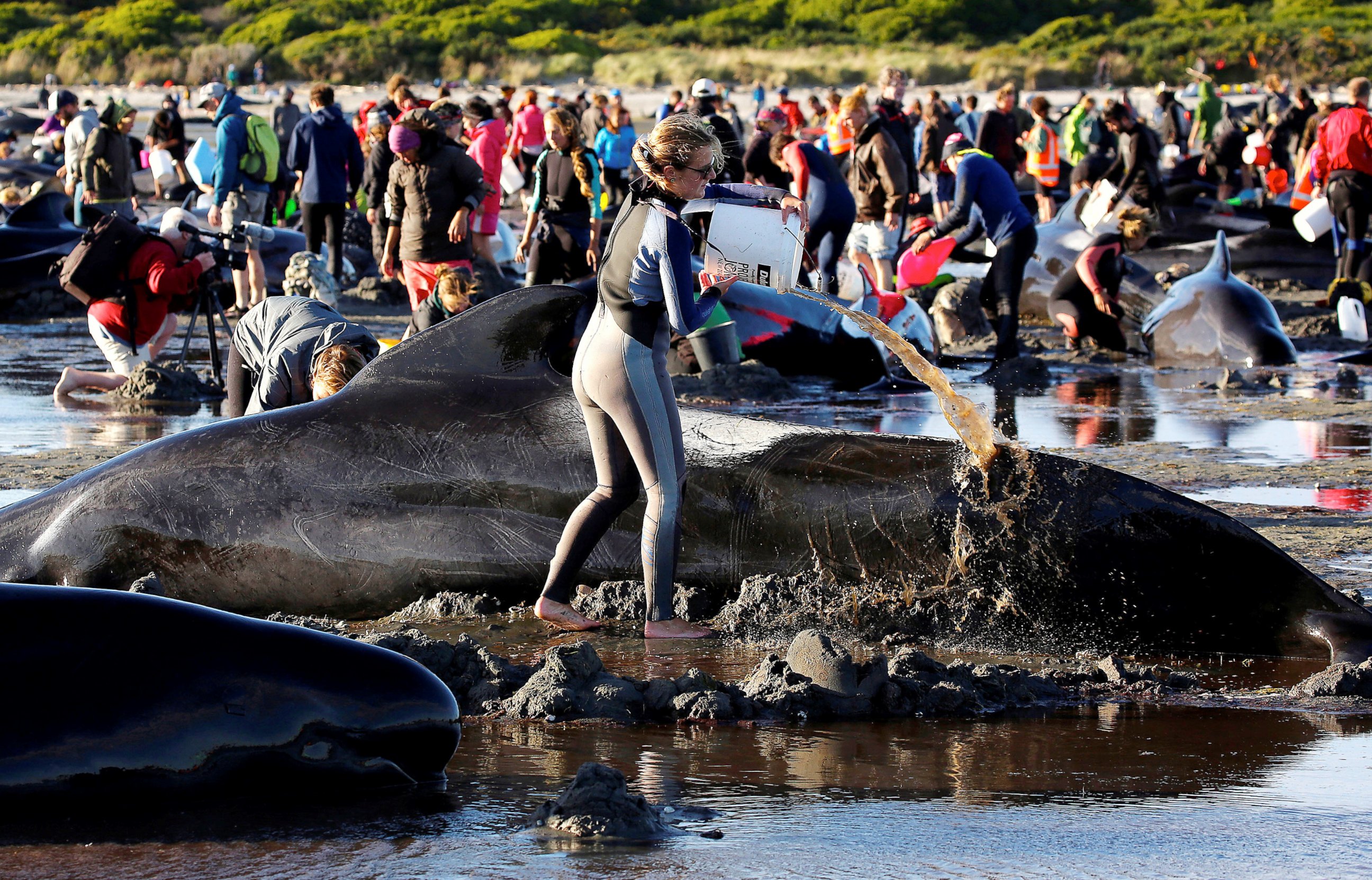
Hundreds of volunteers and staff members of New Zealand’s Department of Conservation spent Friday forming a human chain to keep the stranded whales alive and help them refloat, a term that refers to helping the whales float in the water during high tide, according to TVNZ.
"It's amazing. I met people from all over the world," one volunteer told TVNZ.
People clad in wet-suits were seen covering the whales with cloths, pouring buckets of water on them and even singing to the aquatic mammals that could be heard softly whimpering.
Rescuers so far have been able to refloat about half of the survivors at Farewell Spit, which has been the site of previous mass strandings, according to TVNZ. But it’s a long wait between low and high tide for the dozens of remaining beached whales.
ABC News’ Meredith Longo and Joseph Simonetti contributed to this report.




